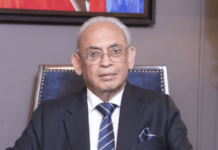Viacom18 Motion Pictures and Phantom’s Queen (UA) is the story of Rani (Kangana Ranaut) who is ditched by the man who she is to marry even as the wedding preparations are on in full swing.
Vijay (Rajkumar Rao) woos Rani, following her wherever she goes. The families of Vijay and Rani decide to get them married and even as the wedding arrangements are underway, Vijay tells Rani that he has had a change of mind and cannot marry her. Rani is a simple girl, low on self-esteem and confidence, and is shaken by Vijay’s stance. She pleads with him to not let her down, promising to change as he wished, but Vijay is unwilling to reconsider.
After getting over her depression, Rani decides to go for her honeymoon abroad – alone! She leaves for Paris and Amsterdam. The film is about Rani discovering herself on her first foreign trip where she meets and befriends some wonderful people. In Paris, she meets Vijaylakshmi (Lisa Haydon) who prompts her to enjoy life. In Amsterdam, she shares a room with three male foreigners, Oleksander (Mish Boyko), Taka (Jeffrey Ho) and Tim (Guitobh Joseph), who are very nice to her and also protective towards her.
Vijay has a change of heart when he receives a picture of Rani on his cell phone, sent by Rani by mistake. In the said photograph, Rani is in a hep costume and looks quite different from her plain Jane self. Vijay approaches Rani in Amsterdam and pleads with her to forgive him for having dumped her. He expresses his desire to marry her.
Does Rani forgive Vijay and accept him as her life partner? Or does she find a husband in Paris/Amsterdam? Does she return to India to her parents? Or does she settle abroad?
Parveez Shaikh, Chaitally Parmar and Vikas Bahl’s story is interesting because it is fresh. But the screenplay, penned by the trio, loses steam midway because the film becomes all about Rani discovering herself on her foreign trip after she boards the flight to Paris. It does not give enough importance to the story of Rani and Vijay, which is the starting point.
While watching the film, the audience gets the impression that the writers seem to have unfolded only part of the drama, the other part remaining safely ensconced in their minds. For instance, they have not bothered to explain what situations or incidents led Vijay to dump Rani. It becomes imperative for the audience to know the reasons and the incidents which preceded the breakup because Vijay had wooed Rani rather than Vijay being forced by anyone to marry her. Again, it looks rather ridiculous that he has a change of heart merely because he sees her in a modern outfit in the picture he receives on his cell phone.
No doubt, the journey of Rani to discover herself has several moments of fun and frolic and more than a couple of heart-touching moments too but that does not quite make up for the lack of a wholesome and complete story. The unusual climax is a plus point but one gets up with a feeling that the writers should have devoted much more time to the wrap-up of the drama. In other words, the ending looks hurried. Also, the drama seems to lose its way at places. For instance, there is a small scene in which Rani’s father seems to be salivating at the photograph of Vijaylakshmi in revealing clothes, on his laptop computer. Although this scene is meant to evoke laughter – which it does – it takes away from the more serious issue of Rani feeling miserable about her breakup with Vijay, something her parents are also shown to be distressed about. In a similar way, the drama progresses by showing Rani having a lot of fun in Paris and Amsterdam, thereby diluting the impact of her misery. No harm in that except that it takes away from the film what the drama promises at the start.
There are positive points, too, in the screenplay. The biggest plus points of the drama are the comic scenes which entertain the viewers. However, it must be added in the same breath that the screenplay is sketchy and gives the impression that the writers were scared to spell out everything clearly. Anvita Dutt and Kangana Ranaut’s dialogues are excellent and it wouldn’t be wrong to say that they are far better than the screenplay.
Kangana Ranaut is extraordinary as Rani and she rises above the script to deliver a memorable performance. She gets into the skin of Rani’s character and lives her role. She uses her body language and dialogue delivery skills to the hilt to convey her lack of confidence. Right from her costumes to how she walks and talks, everything suggests her lack of self-confidence in the initial reels. In one word, she gives an award-winning performance. Rajkumar Rao gets limited scope but is natural to the core in the role of Vijay. Lisa Haydon springs a pleasant surprise as the free-spirited Vijaylakshmi. She exposes uninhibitedly. Mish Boyko is effective as Oleksander. Jeffrey Ho endears himself to the audience as Taka. Guitobh Joseph does well in the role of Tim. Yogendra Tiku lends excellent support as Rani’s father. Alka Badola Kaushal is lovely as Rani’s mother. Master Chinmaya Agarwal shines as Chintu. Master Ayaan Malik is cute as little Chintu. Tripta Lakhanpal (as Rani’s grandmother) leaves a mark. Marco Canadea makes his presence felt as Marcello. Nayani Dixit (as Sonal), Sabeeka Imam (as Rukhsar), Ramesh Kalra (as Mr. Dhingra), Poonam Mathur (as Mrs. Dhingra), Mahesh Gehlot (as Mr. Verma), Monica Kohli (as Mrs. Verma), Navinder Behl (as Dadi Verma) and the others provide able support.
Vikas Bahl’s direction is good but could’ve been better. He has concentrated so much on the foreign trip that somewhere, the audience gets the feeling that the main story has been short-shrifted. This will tell on the film’s appeal among the audience, particularly in smaller towns. Music (Amit Trivedi) is a mixed bag. ‘London thumakda’ is a hit song and ‘O gujariya’ is quite appealing but the other songs should’ve been better. The remixed version of ‘Hungama ho gaya’ is delightful. Lyrics (Anvita Dutt) are of a good standard. Bosco-Caesar’s choreography is realistic. Background music (Amit Trivedi) is good. Cinematography (by Bobby Singh and Siddharth Diwan) is excellent. Sets (Vintee Bansal and Namra Parikh) are realistic. Abhijit Kokate and Anurag Kashyap’s editing is sharp.
On the whole, Kangana Ranaut’s performance in Queen overpowers the film itself. The film will, therefore, not be able to realise its full potential. It will do ordinary business because in centres other than the big cities, the audience looks for excitement in drama more than performance of the cast. Business in cities will definitely be good despite very poor opening as the word of mouth for Kangana’s acting will be supremely positive.




























